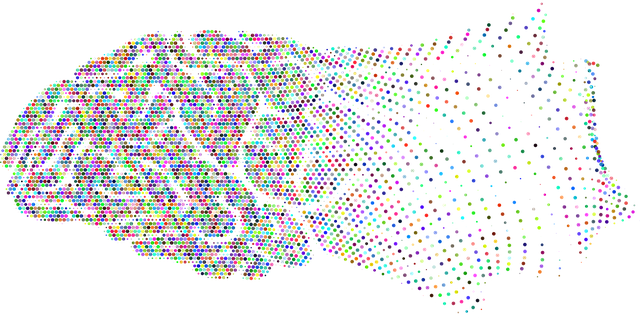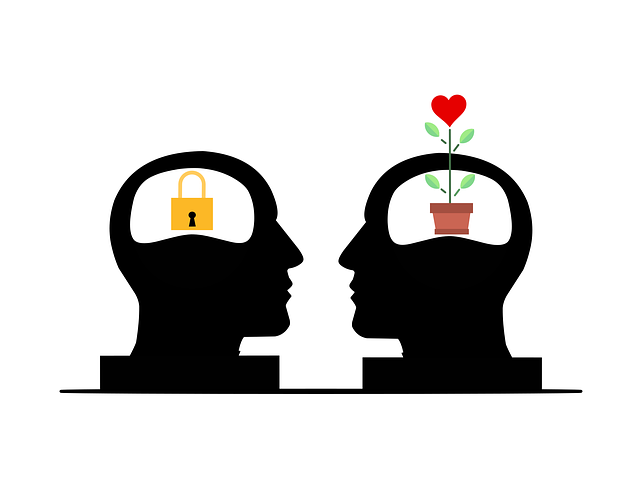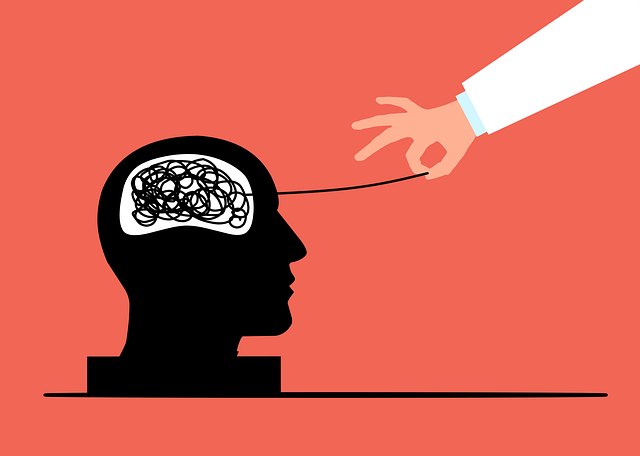Cultural competency in healthcare, vital for multicultural societies, addresses patient-centered care challenges through training like Centennial Exposure and Response Prevention Therapy (CERPT). CERPT helps mental health professionals manage cultural differences, reduce biases, and improve cross-cultural communication. Interactive exercises, immersive scenarios, and evidence-based therapies equip providers to deliver quality care while promoting emotional resilience and well-being. Evaluating training effectiveness involves holistic methods focusing on knowledge, attitude, behavior changes, and improved patient outcomes. Public awareness campaigns and risk assessment are key for continuous improvement in cultural competency.
Healthcare provider cultural competency training is an essential component of modern medical education. In a diverse society, understanding cultural nuances can significantly improve patient outcomes and reduce healthcare disparities. This article explores the critical need for such training, focusing on the framework of Centennial Exposure and Response Prevention Therapy (CERPT) to foster cultural sensitivity. We discuss designing effective programs with key components and strategies, as well as measuring the impact of this crucial training.
- Understanding Cultural Competency in Healthcare: The Need for Training
- Centennial Exposure and Response Prevention Therapy: A Framework for Cultural Sensitivity
- Designing Effective Training Programs: Key Components and Strategies
- Measuring Success: Evaluating the Impact of Cultural Competency Training
Understanding Cultural Competency in Healthcare: The Need for Training

Cultural competency is an essential aspect of modern healthcare that goes beyond treating symptoms and addresses the complex interplay of cultural beliefs, values, and practices among diverse patient populations. It involves understanding and appreciating different cultures, ethnicities, and social identities to deliver patient-centered care that respects individual differences and promotes better health outcomes. In today’s multicultural societies, healthcare providers need to be equipped with the skills to navigate complex ethical and communication challenges arising from cultural variations.
The need for training in cultural competency is driven by the recognition that healthcare disparities often stem from unmet cultural needs. For instance, a recent Mental Wellness Podcast Series Production highlighted how cultural barriers can impact access to mental health services, particularly for marginalized communities. By equipping providers with tools to recognize and address these barriers, such as the principles of Centennial Exposure and Response Prevention Therapy, we can facilitate meaningful conversations, reduce the stigma associated with mental illness, and ultimately support Depression Prevention initiatives. Effective training should foster empathy, improve cross-cultural communication, and enable healthcare professionals to provide inclusive care that respects and honors diverse cultural backgrounds.
Centennial Exposure and Response Prevention Therapy: A Framework for Cultural Sensitivity

Centennial Exposure and Response Prevention Therapy (CERPT) offers a powerful framework for enhancing cultural sensitivity in healthcare settings. This therapeutic approach encourages individuals to confront and manage their emotional responses to challenging situations, particularly those rooted in cultural differences. By engaging in CERPT, healthcare providers can develop a deeper understanding of their own biases and learn effective strategies to respond sensitively to patients from diverse backgrounds.
Integrating CERPT into training programs for mental health professionals fosters self-care practices and emotional regulation, enabling providers to navigate complex cultural interactions with resilience. Furthermore, this therapy facilitates advocacy efforts in mental health policy analysis by promoting a more inclusive approach. By recognizing and addressing unconscious biases, healthcare systems can better cater to the needs of diverse communities, ensuring equitable access to quality mental health services.
Designing Effective Training Programs: Key Components and Strategies

Effective healthcare provider cultural competency training programs are designed to foster deep understanding and appreciation for diverse cultures among medical professionals. Key components include interactive Self-Awareness Exercises that encourage personal reflection on biases and preconceptions, as well as immersive scenarios that mimic real-world interactions with patients from different backgrounds. These exercises should go beyond mere knowledge retention, focusing on developing Conflict Resolution Techniques to navigate challenging conversations sensitively and effectively.
Incorporating evidence-based therapies like Centennial Exposure and Response Prevention can help trainees manage their own emotional responses when confronting cultural differences. Moreover, integrating Mental Health Education Programs Design that address the unique psychological impacts of working with diverse populations ensures healthcare providers are equipped not just to deliver quality care but also to maintain their well-being in this crucial aspect of modern medical practice.
Measuring Success: Evaluating the Impact of Cultural Competency Training

Evaluating the impact of cultural competency training is a multifaceted process that goes beyond mere knowledge retention. Measuring success involves assessing changes in attitudes, behaviors, and ultimately, improved patient outcomes. This can be achieved through various methods, including self-assessment tools, peer evaluations, and data analysis. By comparing pre- and post-training surveys, researchers can gauge the effectiveness of programs in enhancing cultural awareness and sensitivity among healthcare providers.
One effective approach is to incorporate Centennial Exposure and Response Prevention Therapy techniques into training modules. These therapies encourage participants to confront biases and preconceived notions, fostering a deeper understanding of diverse cultural perspectives. Additionally, public awareness campaigns development and risk assessment for mental health professionals can contribute to the overall success metric by raising visibility and promoting self-awareness exercises that are integral to continuous improvement.
Cultural competency training, particularly through innovative approaches like Centennial Exposure and Response Prevention Therapy, is a game-changer in healthcare. By equipping providers with the skills to understand and navigate diverse cultural contexts, these programs foster more inclusive and effective patient care. Implementing well-designed training, backed by measurable evaluation methods, ensures that healthcare remains a beacon of accessibility and sensitivity for all. This comprehensive approach not only enhances individual provider practices but also contributes to a more equitable healthcare system as a whole.














